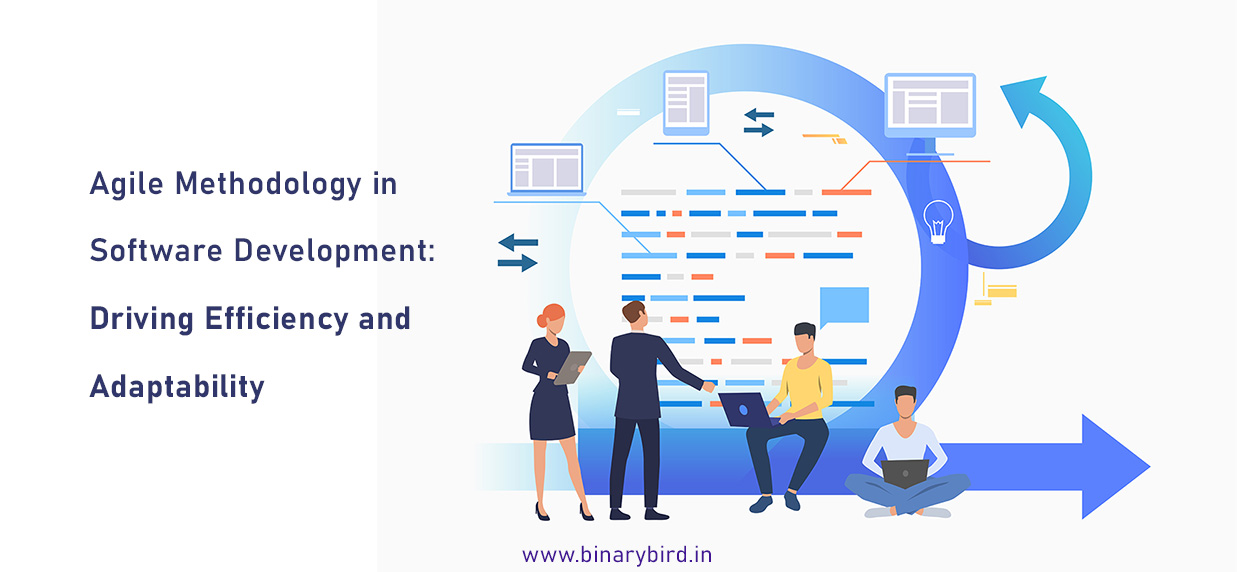In today’s fast-paced tech industry, staying ahead requires not just speed, but also adaptability. Agile methodology has emerged as a cornerstone for achieving both efficiency and adaptability in software development. Let’s delve into how Agile practices are revolutionizing the way software is built and why it’s essential for modern development teams.
Key Principles of Agile:
Agile methodology is guided by several core principles that shape its approach to software development:
- Iterative Development: Breaking down projects into small, manageable iterations or sprints.
- Customer Collaboration: Prioritizing customer feedback and involvement throughout the development process.
- Adaptability to Change: Embracing changes in requirements and priorities, even late in the development cycle.
- Continuous Feedback: Regularly soliciting and incorporating feedback to improve the product incrementally.
Benefits of Agile Methodology:
Implementing Agile methodology offers numerous advantages for software development teams:
Increased Flexibility and Adaptability: Agile enables teams to respond swiftly to changing market demands and customer needs.
Enhanced Collaboration and Communication: By promoting close collaboration among team members and stakeholders, Agile fosters a shared understanding of project goals and requirements.
Faster Time to Market: The iterative nature of Agile allows for quicker delivery of working software, enabling businesses to seize opportunities and gain a competitive edge.
Improved Product Quality: Continuous testing and feedback loops in Agile result in higher-quality software with fewer defects.
Implementing Agile in Software Development:
Successful adoption of Agile methodology involves embracing its core practices:
Sprint Planning and Execution: Breaking down work into manageable tasks and executing them within fixed timeframes (sprints).
Daily Stand-up Meetings: Short, daily meetings to synchronize team activities, discuss progress, and identify any impediments.
Continuous Integration and Delivery: Automating the process of integrating code changes and delivering them to production, ensuring a streamlined development pipeline.
Retrospectives and Continuous Improvement: Reflecting on past sprints to identify areas for improvement and implementing changes iteratively.
Case Studies:
AI is not just about solving problems; it’s about creating delightful experiences. Through sentiment analysis, natural language processing, and interactive interfaces, AI can elevate user engagement to new heights. Understanding user emotions, preferences, and context allows software applications to respond intelligently, fostering a deeper connection between users and technology.
At Binary Bird, we believe in the power of AI to revolutionize customer experience. Our AI-driven solutions are crafted to enhance user engagement, making software interactions more intuitive and enjoyable. As a leading provider of AI and ML services, we invite you to explore the possibilities with Binary Bird.Explore real-world examples of companies that have successfully implemented Agile methodology in their software development processes. Highlight how Agile practices have enabled these organizations to deliver high-quality software products efficiently and adapt to changing market conditions.
Challenges and Solutions:
While Agile offers numerous benefits, its implementation can also pose challenges:
Resistance to Change: Overcoming resistance from team members accustomed to traditional development methodologies.
Managing Distributed Teams: Addressing communication and coordination challenges in geographically dispersed teams.
Scaling Agile: Adapting Agile practices to larger projects or organizations.
Conclusion:
In a dynamic and ever-evolving industry, Agile methodology stands out as a proven approach to software development that maximizes efficiency and adaptability. By embracing Agile practices, development teams can deliver value to customers faster, respond effectively to changing requirements, and maintain a competitive edge in the market.
To connect with us please email us at dineshgiri@binarybird.in

